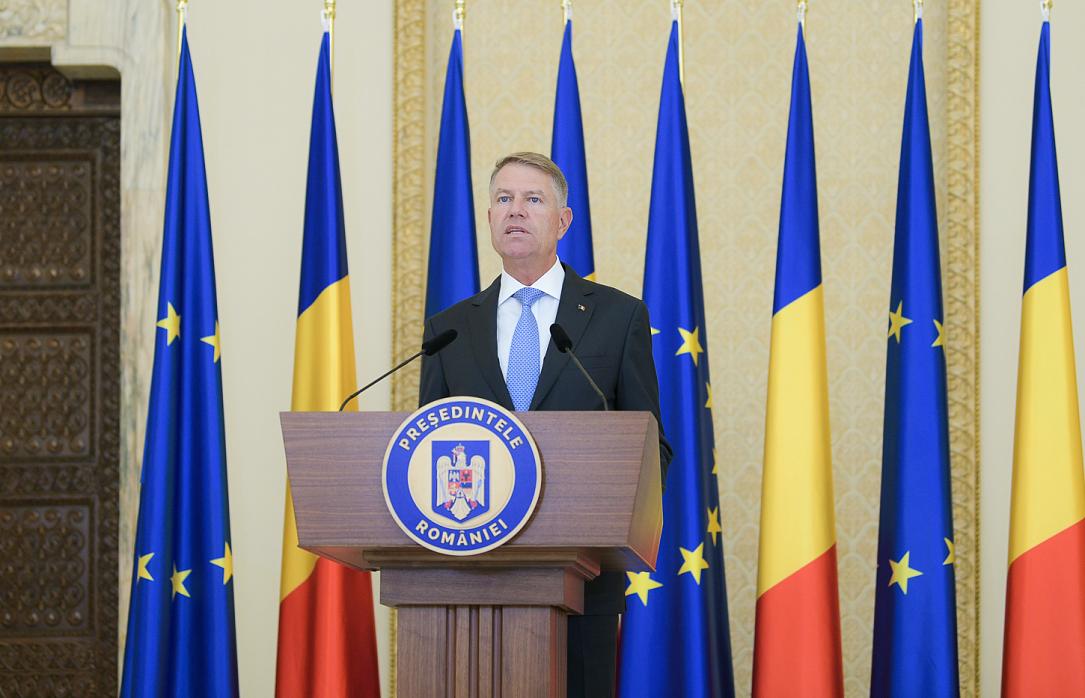Romania's president asks Parliament to pass legislation on fighting the pandemic as coronavirus cases spike



President Klaus Iohannis has asked the Parliament to urgently adopt the legislation the authorities need "to be able to protect the health of the people." He also issued an appeal for "a loyal collaboration between the state institutions."
The Parliament is to debate today, July 9, the draft law on quarantine and isolation, which the Government adopted on July 6, in accordance with the recommendations of the Constitutional Court (CCR).
The quarantine and isolation measures imposed by the Romanian Government through an order signed by the minister of health were temporarily suspended, following the decision of unconstitutionality pronounced by the Romanian Constitutional Court on June 26.
Separately, the Covid-19 patients with no symptoms can't be retained in hospitals, as an effect of the same ruling. As a result, most of the patients in this situation asked to be released home, where there is no legal mechanism to keep them from spreading the epidemic.
Iohannis made the statements on Thursday, July 9, when Romania added 614 coronavirus cases, a record single-day spike in cases.
"This is not a time for egos and political disputes. Saving the lives of Romanians needs to be above everything else. The politicians from all parties need to rise to the dignity of their positions. […] Together, united, authorities, politicians, journalists, the civil society, we need to send citizens one message: the virus is real, knows no political preference, doesn't disappear by law or by denying it," Iohannis said.
The president explained that, through the Constitution, the state is compelled to take measures to ensure public health. "In fulfilling this obligation, the legislative solutions, besides ensuring the right balance between the rights and freedoms guaranteed and protected by the state, also need to ensure that the crisis is overcome."
The president announced he sent the Parliament an outline regarding the actions and initiatives he undertook during the state of emergency, which was introduced in the country because of the coronavirus pandemic, through two decrees he signed on March 16 and April 14. The document also proposes measures meant to improve the state's response capacity to similar challenges.
Iohannis explained that the only reason for the restrictive measures was to avoid a worst-case scenario, given that Romania did not have the needed medical stocks for emergencies, and all countries were in a race to acquire sanitary supplies.
He said Romania acted "promptly and efficiently" when declaring the state of emergency on March 16, and the decision was made taking into account that the country's large diaspora.
Iohannis explained that the pandemic highlighted "systemic frailties," such as an unbalanced economy, the lack of public investments, low productivity, and a reduced administrative capacity.
He also argued that "the lack of responsibility of previous governments" harmed the state's ability to respond to the coronavirus crisis. Still, the authorities managed to diminish the adverse effects of the epidemic "by acting quickly, proportionately, and efficiently. This would not have been possible without the involvement and dedication of the medical staff," he said.
He highlighted the "responsible and rational" response of the population to the healthcare measures instated and the contributions of the NGO and business sectors.
He again urged people to wear a mask, follow social distancing rules, and hand-wash frequently, saying the measures "are not meant to make our lives more difficult, but, on the contrary, protect us."
(Photo: presidency.ro)
editor@romania-insider.com